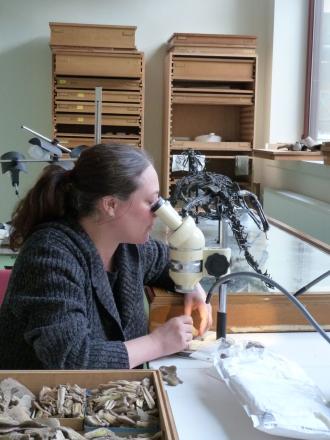April 23, 2019
 California State University, Northridge anthropologist Hélène Rougier's efforts to painstakingly reconstruct Neandertal and early modern human remains found in Belgium caves more than 150 years ago are continuing to shed light on what human life was like in Europe thousands of years ago.
California State University, Northridge anthropologist Hélène Rougier's efforts to painstakingly reconstruct Neandertal and early modern human remains found in Belgium caves more than 150 years ago are continuing to shed light on what human life was like in Europe thousands of years ago.
The latest findings by Rougier and an international, interdisciplinary team of researchers show that Neandertals and early modern humans (Homo sapiens) had very similar diets, and contradicts a popular hypothesis that Neandertals disappeared because of a limited diet.
By studying the DNA of early modern humans who lived in southwest Europe in the millennia following the last ice age, which lasted from 25,000 to 19,000 years ago, the researchers found a diverse genetic history, indicating those groups of early modern humans connected at an earlier time than scientists originally thought.
Read the rest of the story at CSUN Today!
